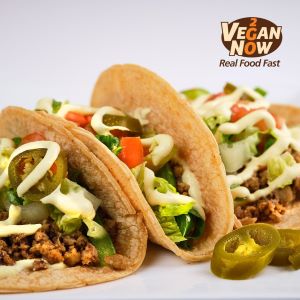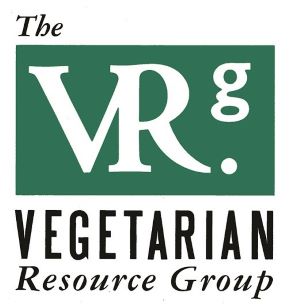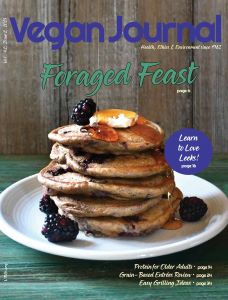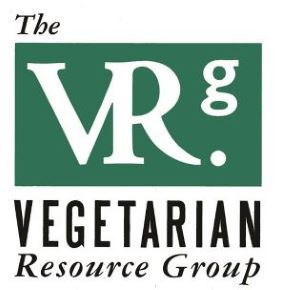Posted on
May 22, 2023 by
The VRG Blog Editor

photo from Vegan Now 2 Go
The Vegetarian Resource Group maintains an online Guide to Vegan/Vegetarian Restaurants in the USA and Canada. Here are some recent vegan restaurant additions. The entire guide can be found here: http://www.vrg.org/restaurant/index.php
To support the updating of this online restaurant guide, please donate at: www.vrg.org/donate
Here are some new additions to VRG’s guide:
Golden Vegan, 5145 Main St., Ste. H, Zachary, LA 70791
This vegan cafe is owned and operated by women and their mission is to bring good food to the community. They specialize in vegan American comfort food. Popular menu items include “Boom Boom Shrooms,” an appetizer of oyster mushrooms fried and tossed in chili sauce, as well as their “Vegan Southwest Egg Rolls,” vegan egg rolls filled with spinach, corn, black beans, red bell peppers, red onions, vegan mozzarella, and their signature golden sauce. They even offer a vegan kids menu, serving vegan chicken nuggets or a vegan cheeseburger!
Green Elephants, 507 N. Franklin St., Watkins Glen, NY 14891
Located on N. Franklin Street, the main street running through Watkins Glen, but also a five minutes’ walk from the Cavern Cascade, the trailheads for Watkins Glen state park, and the Six Nations Campground, as well as a 15 minutes’ drive from Farm Sanctuary, Green Elephants offers an all-vegan menu featuring all the classic Thai dishes and more, mostly with a choice of tofu and seitan mock duck: Pad Thai, Pad See Aew, Pineapple Fried Rice, Thai curries, stir fried veggies, rolls, dumplings, soups, spicy salads, and desserts including Fried Bananas and Lychee on Ice. All dishes are beautifully presented and live up to authentic Thai standards, brimming with color and flavor.
Jardin, Robinia Courtyard, 329 E. Washington Ave., Madison, WI 53703
Enjoy a globally inspired dining experience with a rotating menu including snacks, starters, entrees, desserts, a full bar, and more. Some sample dishes have included Yuba Salad, Chickpea Curry, Blackened Tofu, and Cocoa Nib Brownie. Indoor and outdoor seating available (weather permitting).
Jikoni Café, 633 W. 35th St., Norfolk, VA 23508
Jikoni Café is a vegan café located within the House of Consciousness book store, right by Old Dominion University. Jikoni Café uses “Jikoni Kush” in their menu items, an African grain known to enhance the flavor and hardiness of food. Some menu items include their vegan Nacho Supreme which is described as, “A well layered bed of crisp shredded lettuce hidden under a terrific trio of sour cream, salsa, and Jikoni Kush covered in shredded vegan cheese and sprinkles of green onion all cradled in a basket of white corn chips.” They also specialize in vegan smoothies and shakes blended with agave nectar for natural sweetness!
Make it Vegan, 790 Kipling St., Lakewood, CO 80215
The name of this women-owned restaurant says it all: the goal is to take the important components of our favorite dishes and recreate them entirely from plants—just “make it vegan.” And rather than limiting themselves to one menu of yummy comfort foods, their menu rotates. Some options that can make their appearance in the rotation include the Pesto Portabella Panini made with vegan mozzarella; Birria Nachos with Birria black oyster mushrooms and cotija cheese; and the Taquitos Plate—3 taquitos stuffed with empanada filling that includes meatless beef crumbles. Spanning a range of cuisines, including Italian, Mediterranean, Mexican, and American, Make It Vegan makes something for everyone’s particular tastes.
Planta Queen, 1200 New Hampshire Ave. NW, Washington, DC 20036
Planta Queen is inspired by Asian cuisine that focuses on being sustainable and upscale in their offerings. Try vegan sushi made with ingredients such as watermelon and mushrooms. Some standout dishes include pad Thai slaw, coconut ceviche, dumplings, and truffled fried rice. Not only is the food reminiscent of Asian culture, but the atmosphere was influenced by Chinese courtyards. Planta Queen is a great restaurant if you are look for inventive food that is served in a stylish ambiance.
Vegan Now 2 Go, 1536 E. 75th St., Chicago, IL 60619
South Shore restaurant that offers a variety of vegan comfort food and desserts. Some menu options include fresh burgers, sandwiches, panini, fries, and rich-tasting dairy-free milkshakes. Their mini hot bar is stocked with rib tips, kale greens, mac and cheese, and other soul food classics. Don’t miss their prepared full meals for one, two, or your whole family that you can grab and go from their coolers.










